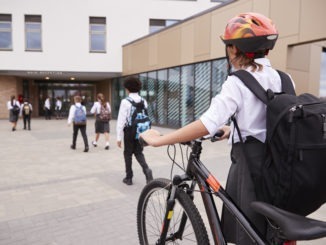
As reported by BBC news, the phrase “build back better” used to be stuck in every government statement like an irritating ring tone you couldn’t escape
And helping schools in England to recover after so much disruption caused by the pandemic was one of the top priorities. But the chief architect of the recovery plan, Sir Kevan Collins, has walked out over a lack of “credible” funding, suggesting that he wouldn’t put his name to building on the cheap. If not a poundshop, then a £22 shop, which he said would be the amount of catch-up cash the average primary school would receive per pupil per year.
“The support announced by government so far does not come close to meeting the scale of the challenge, and is why I have no option but to resign from my post,” said Sir Kevan, as he quit his high-profile role.
It was a damning response from someone highly respected and with decades of experience. The only thing not straightforward about Sir Kevan is how he spells Kevan. So what happens next? Does that scupper the government’s recovery plan in one of its key areas?
As education secretary Gavin Williamson said, the £1.4bn promised over three years is a “pretty hefty amount”. So what was wrong with that? Weren’t the head teachers who called it a “damp squib” expecting far too much? The tutoring plan announced will presumably go ahead. Sir Kevan has continued to back it – but he saw the tutoring cash as an appetising starter rather than the nourishing main course. It will be aimed at disadvantaged children who are most likely to have fallen behind, but it will not be available for all pupils. Many will not get any tutoring from this.
“It is not a panacea,” Sir Kevan said.
The much bigger what-happens-next question is about the much wider, more expensive investment in schools that Sir Kevan had proposed.
“The stakes here are very high. Namely the future prosperity and health of our children,” said Sir Peter Lampl, founder of the Sutton Trust social mobility charity.
He said that Sir Kevan was right to walk away “given the derisory amount” being offered for catch-up.
The much bigger plan, which failed to turn up on Wednesday, was about extra hours in school. There were some mixed messages about this – with the education secretary talking about a longer day, such as for schools which might finish at 14:45. But Sir Kevan’s plan called for a major injection of cash to extend the school day by 30 minutes, in a flexible and fully-funded way, which might be for extra lessons or for sports or arts clubs or other “enrichment” activities.
This was the big ticket part of the plan and would have run for three years, with the aim of recovering lost learning and stopping the disruption of the pandemic becoming a long-term disadvantage. It would give schools funding for extra staffing and services, without putting extra pressure on their teachers. It had echoes of the “extended schools” scheme, rolled out under Tony Blair’s Labour government.
With Sir Kevan’s resignation, the government will now have to decide what to do with the blueprint left on their desks as the door slammed. Apart from the core questions of helping children to catch up, there will be other factors to consider. Like money. And it will become part of the arm-wrestling over the next spending review.
The prime minister promised more funding would be “coming down the track”, but without any specific commitment. As well as this possible £15bn bid for catch-up cash, the Treasury will also be thinking about another big education project – the funding of student finance for people on vocational courses.
There are still many big questions about how this expanded loan system is going to operate and how much it will cost. There’s also the issue of timing and changing moods. The school catch-up tsar was appointed in February, when many pupils were studying at home, and there was huge pressure to show a pathway to a recovery.
In the autumn, when funding plans are next considered, the biggest recent education issue is likely to have been another round of arguments over replacement exam results. Will the political heat have left the catch-up debate? Will there be more appetite to get back to normal rather than push for more upheaval and new initiatives? Parents might also have reservations about longer school days.
Robert Halfon, chair of the education select committee, argues that education recovery has to remain a top priority – and the government needs to “find the money from the back of the sofa”.
This has to be more than a patch-up effort, he argues.
“We need some radical thinking, some thinking out of the box, a proper long-term plan,” he said.
A Downing Street spokesman said: “The prime minister is hugely grateful to Sir Kevan for his work in helping pupils catch up and recover from the effects of the pandemic.
“The government will continue to focus on education recovery and making sure no child is left behind with their learning, with over £3bn committed for catch-up so far.”




Be the first to comment